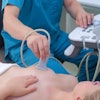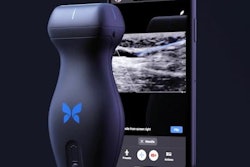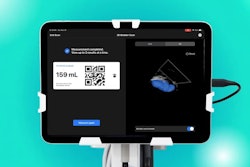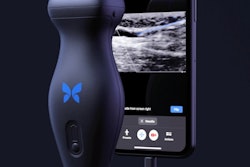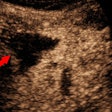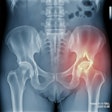Butterfly Network and Rutgers Robert Wood Johnson Medical School (RWJMS) are highlighting results from a study that investigated the impact of point-of-care ultrasound (POCUS) on hospital care.
The findings were presented in December at the European Association of Cardiovascular Imaging's EchoEuro-Imaging Conference in Berlin, Germany.
The study evaluated the use of cardiopulmonary POCUS for patients admitted to the hospital with shortness of breath without an identifiable cause and compared patient outcomes from hospital physicians who used the company's iQ+ and/or iQ3 POCUS devices to those who did not.
A team led by Dr. Partho Sengupta of the RWJMS and the Robert Wood Johnson University Hospital in New Brunswick, NJ, found a significant reduction in patients' length of hospital stay and in healthcare costs:
- Average length of stay reduction was more than four days. Lower-acuity patients had length of stay reductions across a range of 6.7 to 5.6 days, while higher-acuity patients had length of stay reductions across a range of 39 to 16.7 days.
- These reductions translated into significant financial savings, with lower-acuity patients experiencing up to 50% cost reduction.
"This study is an important demonstration that point-of-care ultrasound can serve as a practical tool for stratifying patient acuity, reducing hospital resource utilization, and improving patient flow," Sengupta said in a statement released by Butterfly. "The preliminary findings support the growing body of evidence advocating for POCUS as an essential component of modern hospital care and underscore the need for broader adoption of POCUS to improve outcomes and address healthcare inefficiencies."
Read more about the preliminary findings here.

